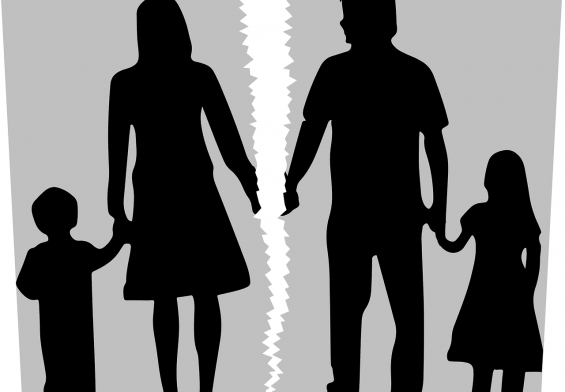Child custody disputes can be overwhelming and stressful, especially for families in Bradley Beach and across Monmouth County. They’re emotionally draining for parents—and even more so for the children involved. Beyond the emotional toll, the legal process brings its own stress and confusion.
This post breaks down child custody laws in a way that’s clear, practical, and tailored to New Jersey families. Whether you’re just starting the process or facing new challenges, speak with a child custody lawyer in Bradley Beach. You’ll gain valuable insights so you can handle custody issues with confidence.
Child Custody at the Federal Level
The federal government doesn’t actually create child custody laws. Decisions like these are usually left up to the states. But there are federal laws that come into play when custody cases cross state or international boundaries.
Jurisdictional Framework
Two key federal laws help determine which state’s court should handle a custody case:
- The Uniform Child Custody Jurisdiction and Enforcement Act (UCCJEA)
- All 50 states, including New Jersey, use this law to establish court jurisdiction. Generally, the state where the child has lived for the last six months holds legal authority. If your child lived in New Jersey for six months, the state’s courts will likely manage your custody case.
- The Parental Kidnapping Prevention Act (PKPA)
- This prevents parents from moving to another state just to get a more favorable custody ruling. Let’s say one parent tries to start a custody case in a different state before the original case resolves. The new state usually can’t intervene without the original state’s permission.
Best Interests of the Child
Almost every court uses one fundamental standard: determining what’s best for the child. This goes far beyond simple financial considerations or parental preferences.
In Monmouth County, courts analyze many critical factors in a child’s well-being. Judges check the strength of emotional bonds, each parent’s ability to provide a stable home environment, the child’s educational needs, and the potential long-term psychological impacts of custody arrangements.
New Jersey Custody Laws
New Jersey courts approach custody with a commitment to keeping both parents involved in their children’s lives. That’s not always possible, so it’s only done when it’s safe and in the child’s best interests.
Types of Custody Arrangements
Courts recognize several custody configurations to address the unique needs of different families:
- Joint Legal Custody lets both parents share decision-making responsibilities for significant aspects of the child’s life
- Sole Legal Custody grants one parent exclusive decision-making authority
- Residential Custody determines the child’s primary living arrangement
Parenting Time and Visitation in New Jersey
When one parent doesn’t have residential custody, they’re granted parenting time (visitation). Courts establish a schedule, so the child maintains meaningful relationships with both parents.
Judges may order supervised parenting time if there are safety concerns. These visits occur with a neutral third party present.
Local courts understand the unique challenges of co-parenting in Monmouth County. Factors specific to the area can influence custody decisions. Proximity of parents’ residences, local school district boundaries, community support networks, and accessibility of extracurricular activities all have an impact.
Filing for Custody in Bradley Beach and Monmouth County
Parents don’t need to be divorcing to seek a custody arrangement. New Jersey offers non-dissolution cases for various scenarios. Some of these include unmarried parents, married couples not divorcing, or grandparents seeking custody or visitation.
New Jersey can enforce out-of-state custody orders registered with the courts. Registering requires completing a specific form and paying a $35 filing fee.
When to Seek Professional Help
Professional legal guidance becomes necessary in several scenarios:
- Significant communication breakdowns with your co-parent
- Concerns about child safety
- Complex custody negotiations
- Need to change existing custody arrangements
- Interstate or international custody challenges
Understanding Court Decision-Making Process
New Jersey courts use nuance when applying the “best interests of the child” standard. Judges examine each parent’s willingness to support the child’s relationship with the other parent, the child’s own preferences (if mature enough to express them), specific home environment details, and potential long-term impacts of proposed arrangements.
Navigating Emotional Challenges in Custody Cases
Custody disputes extend far beyond legal proceedings. For Bradley Beach and Monmouth County families, the emotional impact can be exhausting. Mental health professionals emphasize the importance of prioritizing the child in these decisions.
Parents must recognize that children experience profound emotional impacts during custody disputes. It’s all about the child’s psychological well-being. There needs to be a balance between compassion, communication, and stability. Protect children from parental conflicts, maintain emotional support, and focus on their security.
Monmouth County offers many local resources to support families during custody transitions. Mediation, counseling referrals, and workshops can help parents handle these challenging situations. Local organizations offer extra support, providing specialized services to families experiencing custody transitions.
Financial planning becomes another crucial consideration during custody negotiations. Parents must prepare comprehensive documentation of current income streams, child-related expenses, potential future educational costs, and healthcare considerations. Working with a child custody lawyer in Bradley Beach can help families encompass all aspects of custody arrangements.
Protecting Your Child’s Future
Child custody isn’t just about legal documents. It’s about creating a supportive structure that prioritizes your child’s well-being. Understanding New Jersey’s child custody laws empowers parents to make informed decisions.
If you’re facing custody questions in Monmouth County, consult a child custody lawyer in Bradley Beach. They’ll provide the strategic guidance and support you need during this challenging time.
Resources:
https://www.njcourts.gov/self-help/child-support-custody
https://www.njcourts.gov/self-help/child-support-custody/visitation
https://www.congress.gov/crs-product/RS21091




